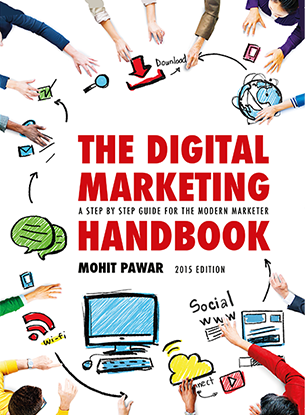This is Post No. 15 in How to Start a Business Series.
“Build and they will come”, is what a first time entrepreneur thinks.
“Validate, build and get them to use and buy”, is how a seasoned entrepreneur rolls.
You can do what successful entrepreneurs do – even when you are a first time entrepreneur. This is what this series is about – helping you do it right first time.
To increase your chances of success, it makes sense to go out and find buyers for what you sell.
Here are few basics to get you started.
Basics of Sales
1. Customer Contact
First step in sales is customer contact. (I am assuming that you have done the prospect list building and organizing contacts of those you want to sell to).
Customer contact can be in person, over phone, or via email. It can be cold (when you reach out to a customer without any initial connection) or warm (when initial contact between you and your customer has already been made).
2. Presentation Meeting.
Later you may do a presentation in person or online. During this meeting you,
- Present information.
- Answer queries and close (bigger projects may take longer to close).
- Set up the customer to use your product or service with a free trial.
3. Relationship Management
After the meeting is over, stay in touch with customer, support and be there when the customer needs you.
4. Closing the Sale
Ultimately you ask the customer to buy. Some of those who signed for a free trial will agree to buy from you. If your product is really good and your relationship is superb, customer asks you to buy from you, on her own.
Voila, you have now made the sale.
Building Social Proof to Drive More Sales.
During the initial days of building your business you need to be seen as someone who can be trusted. Social proof can help you in this trust building.
One very good way of building social proof is having high profile customers.
1. Sign up big brands (universally recognized) as customers – even for free or for a very low cost.
2. Focus on doing small projects.
It takes time for a large brand to trust a small company. Also the closing cycle for enterprise level projects is long – it can be as long as 6 months to a year. So, initially do not pitch for big projects with these companies. Pitch for small work that big suppliers/vendors may not be interested in. Such projects are easier to get than large scale projects.
Once you do it, you can mention these companies in your presentations and website etc under “clients we have worked with” section.
If they are not ready to pay you – then offer to work for free initially. If your work is good and delivered timely, often free projects make way for paid work. Do not make this end all and be all of your existence but pay attention to it. Keep on doing small projects that pay on side to keep your ship moving.
You just do not need any social proof. FB likes and Twitter followers are also part of it. This helps more if you are in a consumer focused business. But for a B2B business big name customers are always better than a million facebook fans.
Social media based social proof can be built quickly by advertising. So spend some money (not a lot) on facebook advertising. In some countries where Twitter Advertising is available you can use it.
Action for the day: Build a customer contact list and pick names/numbers that you will use for customer contact next week. Also identify 5 customers that you need to serve to build social proof.



Sir
Please guide me for setting up tuitions business step by step.
Thanks.
Hi Rashmi,
I suggest you go check https://mohitpawar.com/how-to-start-a-business/
It is about setting up a new business – in simple steps.
Read and ask questions wherever you get stuck.
– mohit
” Keep on doing small projects … your ship moving ” – well said since that also allows you to engage the customer and improve on your product based on their feedback.
Thanks Rahul. Good going ahead.
Yes, small projects help a lot – in keeping the morale moving and an entrepreneur and his team stay positive & hopeful.
Signing up for bigger brands is itself a challenge for a naive entrepreneur and working for free or even offering things extra turn into a ‘new and hence granted for exploitation’ kind of scenario for the start-up in most of the cases and if you have a good number of small projects going, the big fish might end up effecting the overall performance on all the projects.
But the only benefit could be, if you have performed while associated with the bigger player – you can expect a second call if required and get some great references as the reach too is bigger with them.
You are right Jigyasa.
But there are ways to work it. If the bigger brand wants to exploit which is not the case mostly – then the startup is free to not do more work after doing the work which is done for social proof. With a lot of ongoing projects – it makes sense to go slow on big ones – not give up on it totally – but do in smaller numbers. Also if the business is already good – then social proof is needed a lot loss. The idea of social proof is to make your offering attractive to smaller (or a bigger number of players).
– mohit
Pingback: 5 Ways You Can Achieve Business Growth | Mohit Pawar . com
Pingback: How To Increase Revenue: Introducing A Simple REVENUE GROWTH BLUEPRINT That You Can Start Using Today To Grow Your Business - Mohit Pawar.com